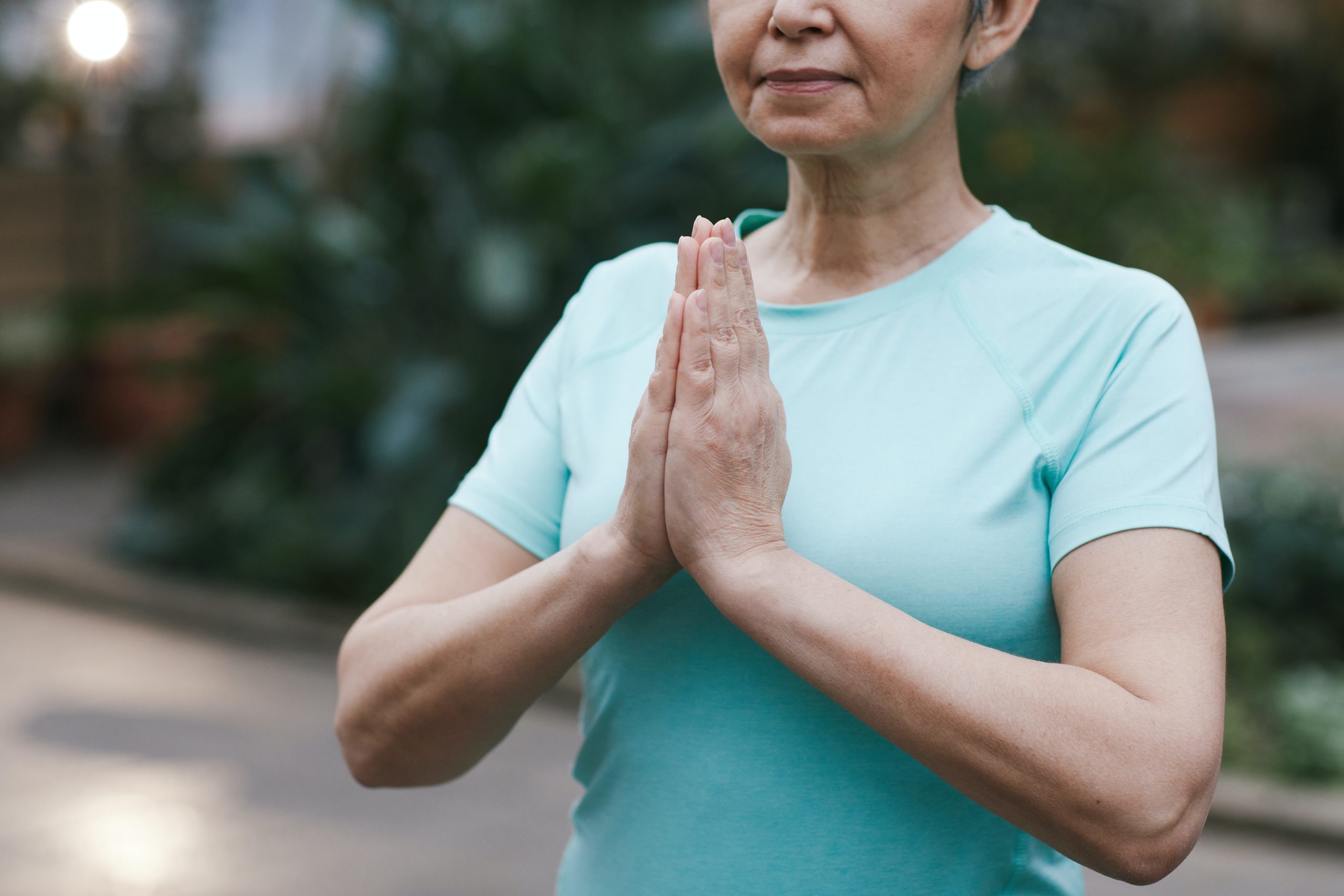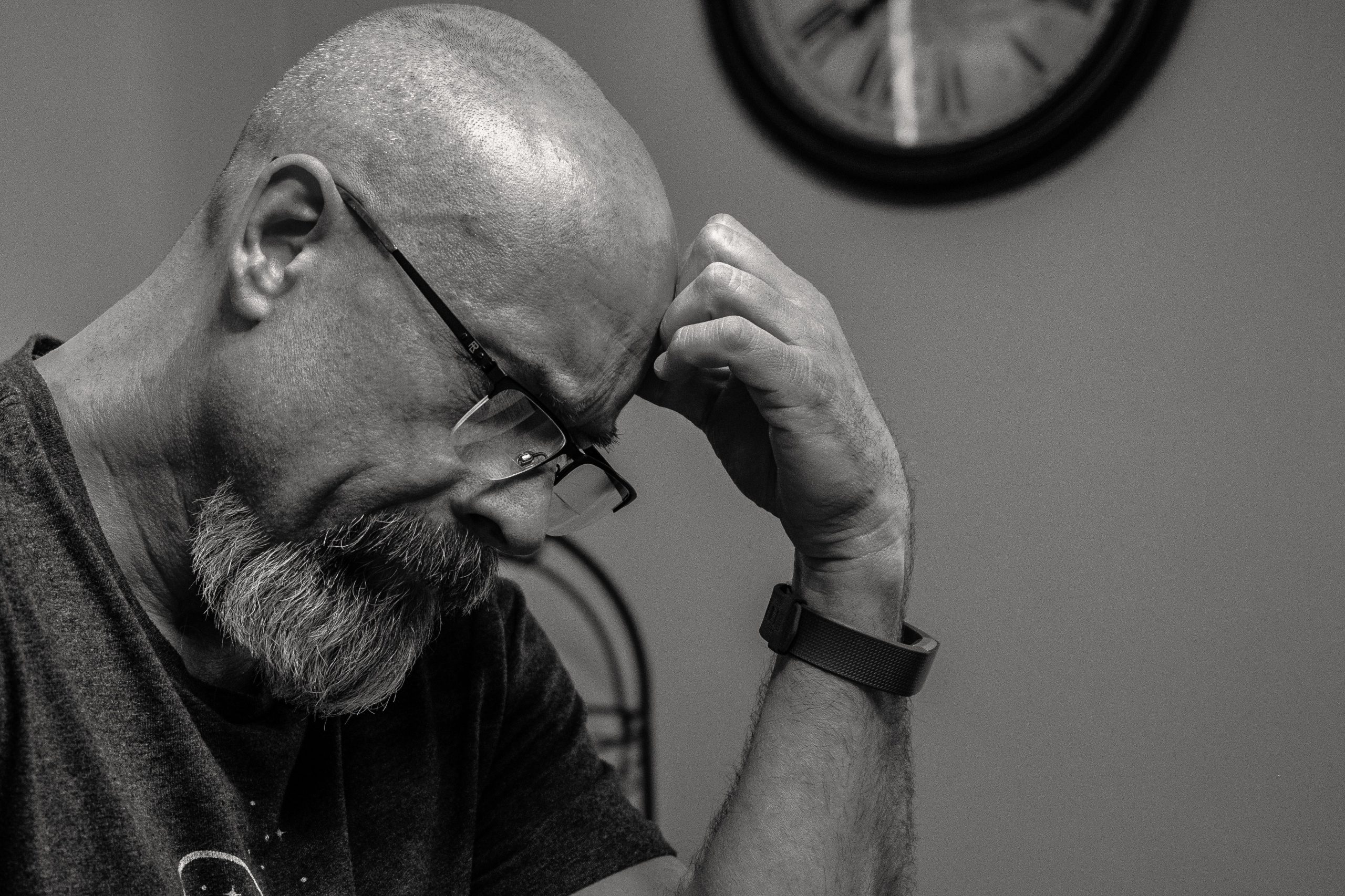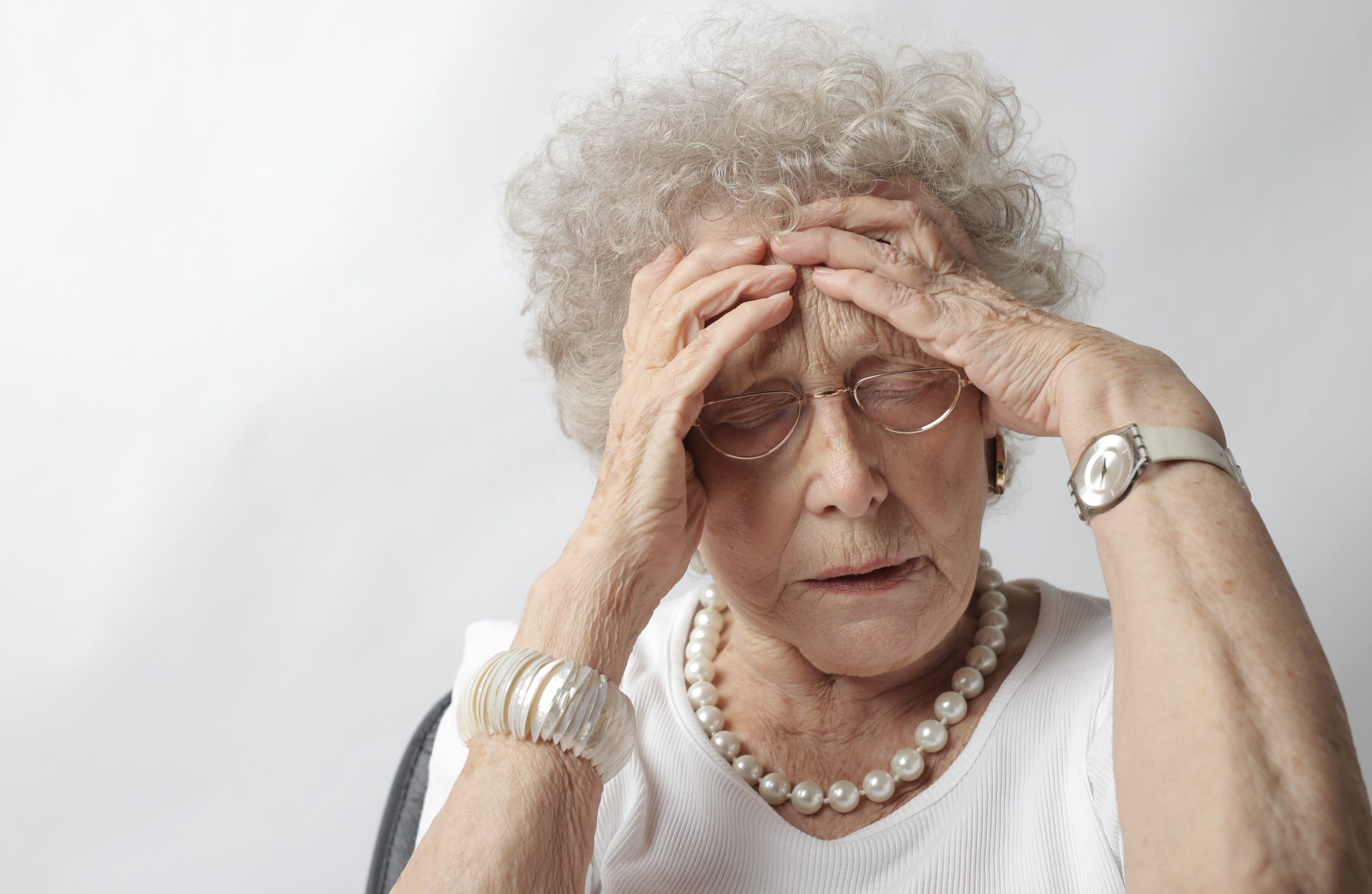 Key Takeaways
Key Takeaways
- Everyone experiences stress occasionally. But did you know the effects of stress on older adults can be greater than in different age groups?
- The unique relationship between stress and aging can cause new health problems and worsen existing ones. Stress even speeds up the aging process itself.
- Discover common causes and signs of stress in older adults and learn effective management strategies to better support your overall health.
Recently, 66-year-old Cliff moved to a new community and was having trouble finding affordable senior housing. His temporary solution—an extended-stay hotel—cost more than his $736 monthly Social Security check could cover. Most days, that meant he didn’t eat.
Linda, 62, faced a different set of challenges. Right before COVID-19 hit, she lost both her job and her marriage. Newly unemployed and living alone, she wasn’t sure how to navigate these uncharted waters by herself.
And Charlsie, 83, struggles to understand technology. Already “somewhat of a worrier,” her mistrust of any call on her flip phone has unwittingly isolated her from relatives and friends whose help with paperwork and other tasks could be a great relief.
None of these older adults knows each other, but they each share something in common: Stress.
What is stress?
According to the World Health Organization, stress is a mental reaction to challenging circumstances. Cliff’s financial instability. Linda’s layoff and divorce. Charlsie’s technophobia and social isolation.
From an evolutionary standpoint, stress exists to help humans survive; it’s the basis of what scientists commonly call the “fight-or-flight” response. We experience it both emotionally and physically; yet the signs of stress can sometimes be easy to miss. Why? Because the condition is so prevalent in everyday American life. As Cliff explained, “I didn’t even realize how much the stress of not having enough money to pay for housing was affecting me.”
That’s precisely why it’s so important to look for red flags. While some stress actually can be helpful, chronic stress can lead to negative health outcomes that worsen with age.
“Stress is a fact of life that most of us experience at one time or another,” said Jennifer Tripken, associate director of NCOA’s Center for Healthy Aging. “But the unique relationship between stress and aging means that older adults and their families, friends, and caregivers should pay particular attention to what causes it, how to recognize it, and what to do about it.”
Let’s take a closer look.
Does stress affect older adults more?
In a word, yes.
According to the American Institute of Stress, stress and inflammation are closely linked. Further, stress negatively impacts the body’s ability to effectively respond to certain kinds of inflammation that lead to age-related conditions.1
In other words, more stress equals more inflammation, and more inflammation when we’re stressed equals more (or worse) health problems. These include atherosclerosis (hardening of the arteries), Type 2 diabetes, arthritis, dementia, and cancer, to name a few. The same report notes that chronic stress also can reduce the effectiveness of certain vaccines in older adults, including for the flu and pneumonia. And stress actually accelerates the aging process itself.
You can see that stress and age don’t play well together,” Tripken said. “Learning how to manage it is so important to maintaining long-term health and well-being.”
What causes stress?
Just as the effects of stress can vary in different age groups, so can the reasons we experience it. A younger person might feel stressed out due to launching a new career, starting a family, or paying off student loan debt, for instance. An older adult likely has a different set of worries.
Some common causes of stress in older adults include:
- Chronic illness
- Caregiving responsibilities
- Loss and grief
- Loneliness or boredom
- Financial worries
- Major life changes, such as retirement
What are the symptoms of stress?
Because of its relationship to inflammation and disease, learning to recognize the emotional and physical signs of stress can be an important first step toward taking care of your health. In an older person, these can include:2
- Headaches
- Digestive issues
- Irritability
- Heart palpitations
- Sleep disturbances
- Poor concentration
- Crying
- Social withdrawal
This list isn’t exhaustive, Tripken explained, and individual people may exhibit many of these signs or just one. Plus, it’s easy to make excuses for stress, or—like Cliff—fail even to recognize it. But if something feels off, it probably is. If your moods or daily habits have changed, this can be a clue that you’re experiencing stress.
 Top 6 ways to deal with stress
Top 6 ways to deal with stress
The good news is, there are some really good stress management strategies anyone can use. Even better, you don’t have to try them all, or all of them at once. Choose one or two approaches that interest you and are realistic.
1. Remove the source
This isn’t always possible, but if you can, try to identify what’s causing your stress and do something to change that. Cliff, for example, got help paying for housing. Linda asked about applying for SNAP benefits. And Charlsie took steps to overcome her technophobia by seeking assistance at her local senior center.
2. Eat well
Following a healthy, balanced diet can boost the immune system, help combat the effects of inflammation, and fuel positive physical energy. And, filling up on bulky, good-for-you fruits and vegetables can prevent “stress-eating” a bag of potato chips or pint of ice cream.
3. Stay hydrated
Drinking enough water yields many health benefits, including improved brain performance. Adding a glass or two a day can help keep you mentally sharp and stabilize your emotions. Plus, keeping yourself hydrated leads to better digestion, eases headaches, and boosts your energy, too.
4. Exercise
Regular physical activity helps reduce blood pressure, ease arthritis pain, combat chronic illness, and lift your mood. And you don’t have lace up a pair of running shoes and start training for a marathon to reap these benefits, either. Even gentle movement like tai chi can make a world of difference.
5. Get enough sleep
Sleep is essential to good physical and mental health. It’s the time when the body repairs itself and the mind takes a break. In particular, REM (deep) sleep helps regulate mood and memory. Establishing “sleep-friendly” routines can help both to reduce stress-related insomnia and other negative effects. Sleep quality can be improved with a comfortable mattress that fits your sleep preferences.
6. Meditate
Engaging in deep breathing, positive visualization, and other mindfulness practices can help calm racing thoughts, slow a rapid heart rate, relax tensed-up muscles, and create a sense of well-being. There are many different ways to meditate, so take time to explore some approaches and find one that works for you.
Remember: everyone experiences stress from time to time. Being proactive about managing yours can maintain your physical and mental health and well-being so you can age well.
Sources
1. The American Institute of Stress. Seniors and Stress. Found on the internet at https://www.stress.org/seniors-and-stress
2. Harvard Health Letter. Stress relief tips for older adults. Found on the internet at https://www.health.harvard.edu/stress/stress-relief-tips-for-older-adults






